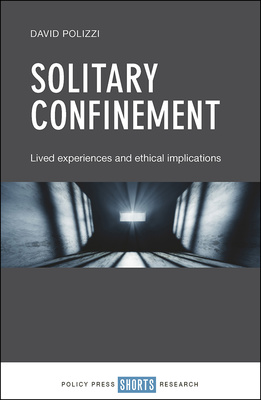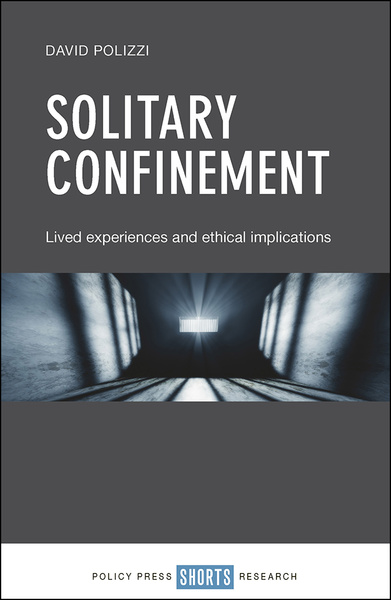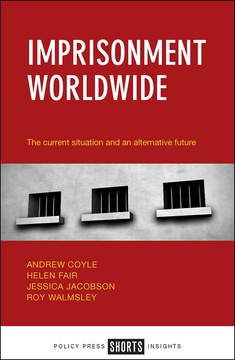Published
Mar 29, 2017Page count
112 pagesISBN
978-1447337539Dimensions
198 x 129 mmImprint
Policy PressPublished
Mar 29, 2017Page count
112 pagesISBN
978-1447337560Imprint
Policy PressPublished
Mar 29, 2017Page count
112 pagesISBN
978-1447337577Imprint
Policy PressWhy is solitary confinement used in today’s world? Does it help the rehabilitation of offenders? And how is policy affected by justification for the use of it?
This book is the first to consider the history of solitary confinement and how it is experienced by the individuals undergoing it. Using Merleau-Ponty’s concept of embodied subjectivity, it provides first-hand accounts of the inhumane experience of solitary confinement to provide a better appreciation of the relationship between penal strategy and its effect on human beings. Drawing on his own experiences as a Psychological Specialist in the Pennsylvania Department of Corrections and on those interviewed as part of the Guardian 6x9 project (http://www.theguardian.com/world/ng-interactive/2016/apr/27/6x9-a-virtual-experience-of-solitary-confinement), the author focuses on the phenomenology of solitary confinement to consider what the intentional aspect of this almost uninhabitable type of confinement says about a democratic society that continues to justify its use as a correctional strategy.
Aiming to influence policy, the book fills the gap between the practice of solitary confinement and its implications, as well as the social attitudes that uncritically condone its use.
“Traces the historical development of the use of solitary confinement in the United States, and describes personal accounts of individuals who have experienced this type of confinement in order to challenge its continued use in the modern age.” Ryan M. Labrecque, Portland State University
"Reveals the psychological harm caused by solitary confinement and critically examines the philosophical assumptions surrounding this extreme and cruel form of punishment....an insightful and important study." James Hardie-Bick, University of Sussex
Dr. Polizzi has worked as a forensic psychotherapist in the Pittsburgh area since 1989. Prior to his current position with Indiana State University, he was a full-time psychotherapist with the Center for Psychiatric and Chemical Dependency Services. Dr. Polizzi taught at a variety of Pittsburgh area colleges and worked therapeutically with offender populations both in the community and in a maximum security penitentiary setting.
The experience of solitary confinement: some beginning reflections
A very brief history of solitary confinement and the supermax penitentiary
The developmental history of solitary and supermax confinement: toward a phenomenology of the state of exception
The Supreme Court, solitary confinement, and the prohibition of cruel and unusual punishment
From the other side of the door: the lived experience of solitary confinement
Some closing reflections















